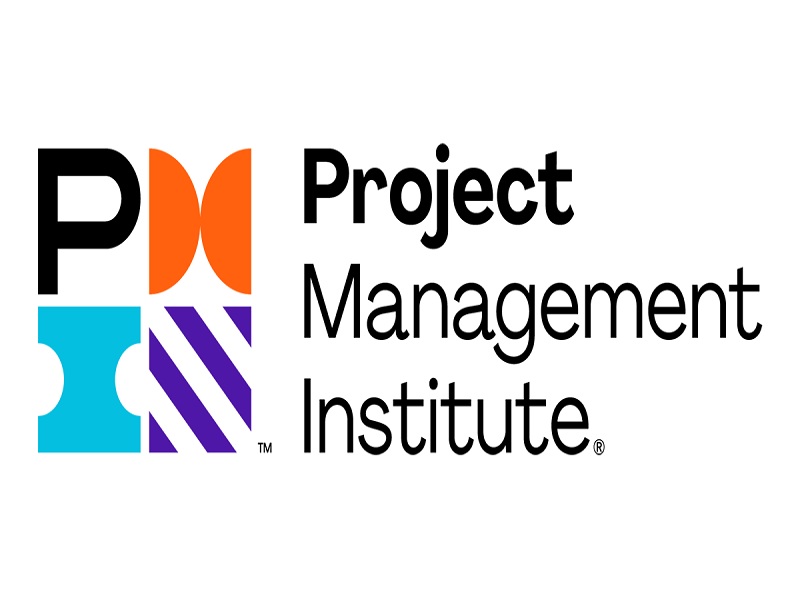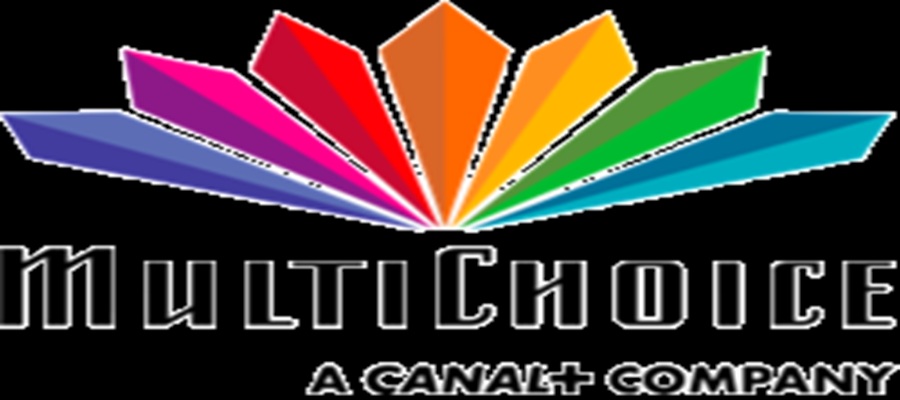Broadcasting
PMI Unveils Free Online Course to Ease Project Execution

Project Management Institute (PMI), the world’s leading association for project professionals and changemakers, recently announced the launch of KICKOFF , a new, free online course and tool kit to help introduce anyone doing project-based work to the best practices and tools needed to effectively manage projects from ideation to execution.

Much of the working world revolves around projects, which have become more complex than ever due to global Megatrends, including COVID-19, climate change, and more.
KICKOFF is the ideal solution for those who are new to doing project-based work and would benefit from learning project managements skills to help successfully navigate the process from idea to launch and execution.
The course is packed with digestible content, downloadable tem-plates, a glossary of key terms, and thoughtful questions to ask to help anyone kick off any project at any time.
According to PMI’s Pulse of the Profession® report, an estimated 11.4% of all investment into projects currently goes to waste due to poor project performance and an inability to nimbly adapt and execute in our rapidly changing world.
Introducing changemakers to project man-agement strategies and tools enables single learners and entire teams to have the framework in place to adapt quickly and efficiently to help reduce wasted time and investment.
KICKOFF is the free, go-to resource for those looking to quickly learn the basics of effective and strategic project management to complete projects on time and within budget.
“KICKOFF is an easily deployable resource to ensure all employees and team members have the foundational skills to seamlessly collaborate and work smarter,” said George Asamani, the Business Development Lead for Africa at PMI.
“KICKOFF arms everyone from first-time project team members to C-Suite executives with the knowledge to kick start a project at any time to help drive results and deliver value.”
No two projects are the same, so KICKOFF uses a guided questionnaire to tailor the learning experience based on the best project management approach for the needs of the project.
Learners are presented a series of short modules that can be completed in sequence or in any order. The modules include bite-sized content focused on the fundamentals, and templates to be downloaded or distributed for immediate use.
Accessible to anyone from their laptop, phone, or tablet, KICKOFF can be completed in just 45 minutes, and is available in five languages: English, Chinese, Portuguese, Spanish, and French.
Following completion of the KICKOFF course, learners will receive a badge to share on their professional social media profiles to show their peers and company that they have the foundational skills to successfully lead any project.
Broadcasting
NCAA Orders Overland Airways to Refund VAT Charged on 2025 Tickets

Nigerian Civil Aviation Authority (NCAA) has directed Overland Airways to refund Value Added Tax (VAT) wrongly charged to passengers on flight tickets purchased in 2025.

NCAA
The directive follows a social media complaint that highlighted the airline’s application of new tax policies to older bookings, prompting NCAA intervention.
Michael Achimugu, NCAA Director of Public Affairs and Consumer Protection, confirmed Friday that Overland Airways agreed to process refunds after receiving clarification from the Nigeria Revenue Service (NRS).
The issue emerged in late January 2026 when a passenger alleged on X (formerly Twitter) that her grandmother faced an extra N11,286 VAT charge at the airport for a 2025 ticket. On January 28, NCAA summoned the airline to justify the additional payments for pre-2026 tickets.
The regulator sought NRS guidance on retroactive VAT application. NRS ruled that updated VAT rules, effective January 1, 2026, exclude tickets issued before that date.
Achimugu updated on X: “This means passengers who paid VAT at check-in in 2026 for 2025 tickets were not supposed to be charged.”
Overland Airways accepted the clarification and pledged refunds, earning NCAA commendation for cooperation. Achimugu noted the airline initially viewed charges as valid under the new framework, but NRS interpretation prevailed.
“The issue has reached a satisfactory conclusion,” he stated, reaffirming NCAA’s commitment to passenger rights and fair policy enforcement.
Affected passengers who paid extra VAT on 2025-issued Overland tickets qualify for full refunds.
Broadcasting
MultiChoice Suspends Yearly DStv Price Hike as Canal+ Pushes Growth

MultiChoice has said that it will not implement its customary yearly price increase on DStv and GOtv subscriptions.

This is the first time the Pay-TV company will not be adjusting its price in April, as it has in previous years, signalling a clear shift in direction under its new owner, Canal+.
The decision, confirmed by David Mignot, group chief executive,MultiChoice in an interview with TechCentral, comes as the pay television operator grapples with steep subscriber losses across its markets.
For many households accustomed to annual April tariff adjustments, the announcement will be a welcome break.
Responding to questions about whether DStv prices would rise in April as they have in previous years, Mignot gave a firm response: there will be no increase.
He explained that the company’s immediate focus is on rebuilding its subscriber base, making this an unsuitable period to adjust prices upward.
He added that while there are no current plans for a price hike, the company has not completely ruled out adjustments later in the year, especially if economic conditions demand it, such as significant currency movements.
MultiChoice has historically reviewed and raised DStv subscription fees in April, often citing inflationary pressures and rising content costs. As recently as April 2025, bouquet prices were adjusted upwards by between 2.1 per cent and 7.9 per cent.
The DStv Premium package rose from R929 to R979 per month, while DStv Access, the entry-level satellite package, recorded one of the steepest increases.
This year’s pause represents a break from that pattern and forms part of a broader reset following Canal+’s acquisition of MultiChoice in September 2025.
Mignot, who brings three decades of experience in the pay television industry, summed up his mission in simple terms: halt subscriber losses and return the business to growth.
The urgency behind the move is evident in MultiChoice’s recent performance.
The group has lost 2.8 million linear broadcasting subscribers in the two years ended 31 March 2025, with roughly half of those losses occurring in South Africa.
In the financial year to end-March 2025 alone, MultiChoice shed 1.2 million subscribers, representing an eight per cent year-on-year decline and leaving the group with 14.5 million active customers.
The previous year saw an even steeper drop of 1.6 million subscribers. By June 2025, Canal+ indicated that the pace of decline had intensified further.
The financial impact has been significant. Revenue for the year ended 31 March 2025 declined by R4 billion to R52 billion, while trading profit fell sharply by 49 per cent to R4 billion.
According to Mignot, the company’s difficulties stem less from its programming slate and more from weaknesses in its commercial execution.
He argued that in subscription businesses, a churn rate of between 12 and 15 per cent annually is inevitable as customers relocate, experience job losses, adjust household budgets, or change priorities. Without attracting a comparable number of new subscribers each year, losses accumulate.
Mignot maintained that the content offering remains strong, particularly in sport and general entertainment. He cited flagship brands such as SuperSport, M-Net and Africa Magic as evidence of sustained investment in programming. However, he stressed that content strength alone cannot offset a weakening subscriber acquisition engine.
He noted that MultiChoice’s commercial machinery had performed robustly across Africa until around 2022, describing the current challenges as relatively recent.
Drawing on Canal+’s experience in French-speaking African markets, Mignot pointed out that pricing there has remained largely unchanged for close to 14 years, supported by a volume-driven approach. He described his strategy as one focused on growing subscriber numbers while maintaining profitability.
While he did not dismiss the possibility of reviewing prices downward in future, he indicated that no such decision has been taken.
Broadcasting
Spotify Marks 5 Years in Nigeria with 163.5% Listening Surge, Afrobeats Boom

Spotify marked five years in Nigeria since its February 2021 launch with dramatic year-on-year listening growth averaging 163.5% through 2025, featuring triple-digit surges early on and sustained momentum, propelled by Afrobeats streams rocketing +5,022% alongside booming genres like Amapiano (+10,330%), Gospel/Praise (+5,499%), Hip-hop/Rap (+3,020%), and R&B (+2,602%).

Spotify
Indigenous language music listening surged +554% in Nigeria in 2024 and +87% in 2025, with global growth at +141% and +41% respectively, underscoring rising demand for local storytelling sounds.
The platform’s Nigerian artist roster expanded +158%, fueling a discovery boom where average listeners (aged 26) streamed 150 different artists recently; users created over 25 million playlists, logged 1.4 million play hours in 2025 alone, and streamed 59 billion podcast hours total.
Top Artists (2021-2025): Asake, Wizkid, Seyi Vibez, Burna Boy, Davido.
Top Songs: “Remember” (Asake), “Dealer” (Ayo Maff & Fireboy DML), “Awolowo” (Fido), “Kese (Dance)” (Wizkid), “Lonely At The Top” (Asake), “Joy is Coming” (Fido), “With You” (Davido feat. Omah Lay), “Terminator” (Asake), “MMS” (Asake feat. Wizkid), “Doha” (Seyi Vibez).
Nigeria’s debut stream was Shiga Lin’s Cantopop epitomizing borderless discovery from day one.

 E-Financial1 day ago
E-Financial1 day agoMutual Benefits Assurance Reaffirms Full Regulatory Compliance, Enhanced Governance

 E-Financial1 day ago
E-Financial1 day agoIran-Israel-US Conflict and CBN’s FX Gains: A Stress Test for Nigeria’s Monetary Stability

 General News1 day ago
General News1 day agoSERAP Asks FCCPC to Investigate Google, Meta, Others over Alleged Rights Abuses

 General News1 day ago
General News1 day agoJAMB Uncovers AI-Driven Fraud Targeting UTME Candidates, Warns Parents

 News1 day ago
News1 day agoFlashChange CEO, Bidemi Oke, Urges Startups to Build Strong Governance Structures Early

 News1 day ago
News1 day agoTeamApt, Awabah Partner to Boost Pension Drive for Nigerians

 General News1 day ago
General News1 day agoCapelli Institute Commits to Advancing Trichology in Nigeria

 E-Financial1 day ago
E-Financial1 day agoReps Mull Commission to Regulate Fintech Operations


























